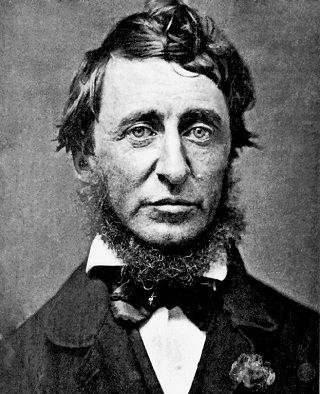Civil Disobedience and Environmental Justice

Moreover, Thoreau played a huge part in explicating the proper role of “civil disobedience” in society. From his famous essay of that name:
“Unjust laws exist; shall we be content to obey them, or shall we endeavor to amend them, and obey them until we have succeeded, or shall we transgress them at once?
Men generally, under such a government as this, think that they ought to wait until they have persuaded the majority to alter them. They think that, if they should resist, the remedy would be worse than the evil. But it is the fault of the government itself that the remedy is worse than the evil. It makes it worse. Why is it not more apt to anticipate and provide for reform? Why does it not cherish its wise minority? Why does it cry and resist before it is hurt? Why does it not encourage its citizens to be on the alert to point out its faults, and do better than it would have them?”
Wow, HD. You raise some good questions there.
And we need to keep in mind that Thoreau posed them over 150 years ago, when government oppression of dissenters was far more mellow and benign than it is today. One of the most disturbing things about modern-day America is the aggression with which it persecutes its whistleblowers.
I hope the relevance to environmentalism is obvious. Check out a few of the 23 million articles that describe the arrest of U.S. protestors, and realize that a huge percent of the people involved were participating in civil disobedience as a tool to bring about environmental justice.
